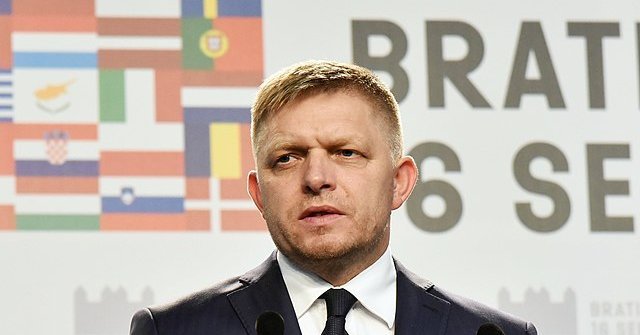On Saturday, Slovaks will go to the polls to elect their next President. While the presidency in Slovakia has historically been a largely ceremonial institution, this year’s election will arguably have the most profound impact on the country’s democratic fabric for years to come. The likely winner is Peter Pellegrini, one of the closest allies of the current populist Prime Minister and Slovakia’s veteran politician, Robert Fico. Under Fico’s rule since October 2023, Slovakia began gradually transforming into an underdog within the EU, joining Orbán’s Hungary.
Pellegrini’s election to the presidency could have significant negative implications for the health of Slovakia’s democracy. In this article, I will discuss how serious those implications are likely to be and, most importantly, where Slovakia has come since Fico’s election in 2023.
Firstly, it is necessary to emphasize that the extent of the Slovak president’s constitutional authority is quite significant despite Slovakia being a parliamentary republic, where the Prime Minister plays a leading role in policymaking. Slovakian President can veto and delay legislation through requests for constitutional reviews, as well as appoint and dismiss judges of country’s Supreme Court. Thus, outgoing Slovakian President Zuzana Čaputová – a representative of the country’s liberal camp that has been in power before Fico’s accession and who has recently accused Fico of “testing the limits of democracy” has been acting as a counterbalance to his government’s controversial legislative decisions. For instance, earlier this year, she attempted to block the legislation aimed at dismantling the country’s anti-corruption office. Consequently, Pellegrini’s election to the presidency will remove this counterbalancing effect, thereby further strengthening Fico and his coalition’s grip on power and potentially resulting in increased politicization of the judiciary, with Fico being already accused by some commentators of “trying to create a mafia state.”
However, even though Čaputová’s presidency has posed some barriers to Fico’s government’s policy agenda, it has never been an obstacle to its adoption. Firstly, despite resistance from Čaputová, Fico eventually succeeded in shutting down the country’s anti-corruption office, thereby significantly threatening Slovakia’s rule of law. Some commentators suggest that the primary motivation for this decision has been a plethora of investigations opened by the abovementioned office against multiple Fico’s allies within his Party as well as against Fico himself, who in 2022 together with the Interior Minister Robert Kalinak was charged with establishing an organized crime group. Now, as Fico has once again become Prime Minister and Kalinak was appointed his deputy, the most fundamental democratic principle of accountability is under significant threat in Slovakia.
When it comes to freedom of speech, Fico’s record is also very alarming. For instance, in 2018, he resigned Premiership over his government’s alleged connection to the assassination of Slovak journalist Jan Kuciak, who, shortly before his death, began investigating Slovakian government officials’ potential links to the Moreover, after his reassuming premiership in 2023, Fico has frequently referred to liberal camp-affiliated media as “enemy media” and accused the leadership of Slovakia’s major public broadcaster - Radio and Television of Slovakia (RTVS) of “failing to fulfill its obligations”. Shortly after, the government announced its intention to shut RTVS down, replacing it with a new institution whose leadership will consist of partisan officials. Overall, it is evident that even if the election is won by a liberal former Foreign Minister Ivan Korčok, it is likely that the ongoing policy direction of Fico’s government will not be affected significantly.
To conclude, under Fico, the democracy in Slovakia is undoubtedly under pressure, with fundamentals of the functional democratic system such as the exercise of power within predefined legal rules and regulations, checks and balances, institutional accountability, and most importantly, the principality of popular will in influencing governance is being severely undermined. Pellegrini’s victory will likely further increase this pressure, accelerating Slovakia’s democratic erosion and leading to potential sanctions from Brussels, such as the Hungary-style blockage of EU funds. Therefore, Fico’s stay in power is likely to negatively impact Slovakia not only politically, but also socioeconomically.

Follow the comments: |
|
